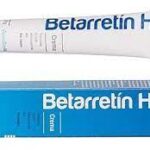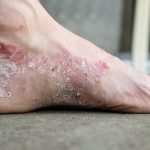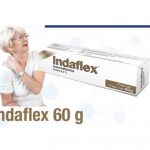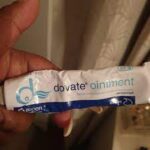Expigment Cream 4%: Ingredients, How to Use, Benefits, Side Effects
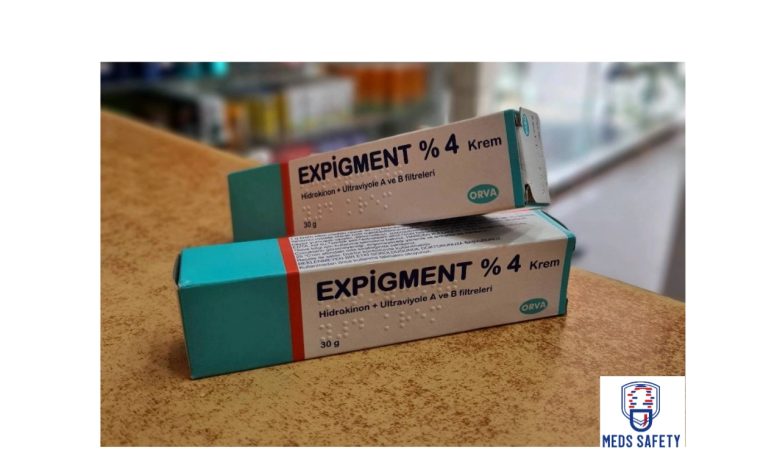
Expigment Cream is a topical medication that contains the active ingredient hydroquinone. Hydroquinone is commonly used for its skin-bleaching properties and is often prescribed for the treatment of hyperpigmentation disorders such as melasma, post-inflammatory hyperpigmentation, and certain types of age spots.
When applied to the skin, Expigment Cream works by inhibiting the activity of an enzyme called tyrosinase, which is involved in the production of melanin. Melanin is the pigment responsible for the color of our skin, hair, and eyes. By reducing the production of melanin, hydroquinone can help lighten dark patches of skin and even out the skin tone.
Each 30-gram tube of Expigment Cream contains 4% hydroquinone. This cream is typically used for short periods of time and in conjunction with other skin care measures, such as sun protection.
How To Use Expigment Cream
When using Expigment Cream or any hydroquinone-containing product, it is essential to follow the instructions provided by your healthcare provider or the product’s packaging. However, here are some general guidelines on how to use Expigment Cream:
1. Cleanse your skin: Start by washing the area where you intend to apply the cream with a mild cleanser and warm water. Pat the skin dry gently with a towel.
2. Apply a thin layer: Take a small amount of Expigment Cream and apply it evenly to the affected area. Massage the cream into the skin using gentle, circular motions until it is fully absorbed.
3. Avoid sensitive areas: Take care to avoid getting the cream in your eyes, mouth, or other sensitive areas. If accidental contact occurs, rinse thoroughly with water.
4. Frequency of application: The frequency of application may vary depending on the specific instructions given by your healthcare provider. In general, Expigment Cream is applied twice daily, usually in the morning and evening. However, your doctor may recommend a different application schedule based on your skin condition and response to treatment.
5. Sun protection: Hydroquinone can make your skin more sensitive to the sun’s rays, so it is crucial to protect your skin from sunlight during the treatment period. Apply a broad-spectrum sunscreen with a high SPF (sun protection factor) of 30 or more before going outside, and reapply as necessary throughout the day. Wearing protective clothing, such as a wide-brimmed hat and long sleeves, can also help shield your skin from the sun.
6. Duration of treatment: The duration of treatment with Expigment Cream will vary depending on the specific condition being treated and the recommendation of your healthcare provider. It is important to follow the prescribed treatment plan and avoid using the cream for longer than advised, as prolonged use of hydroquinone can lead to side effects.
7. Monitor for side effects: While using Expigment Cream, monitor your skin for any signs of irritation, redness, or other adverse reactions. If you experience severe or persistent side effects, discontinue use and consult your healthcare provider.
Remember, it is crucial to consult with a dermatologist or healthcare provider before starting any new treatment, including the use of Expigment Cream. They can provide personalized guidance based on your specific needs and help ensure the safe and effective use of the product.
Benefits of Expigment Cream
Expigment Cream offers several potential benefits for individuals with certain skin conditions. Here are some of the benefits associated with the use of Expigment Cream:
1. Hyperpigmentation treatment: Expigment Cream is primarily used for the treatment of hyperpigmentation disorders. It can help lighten dark patches of skin caused by conditions such as melasma, post-inflammatory hyperpigmentation (PIH), and certain types of age spots. By inhibiting the production of melanin, hydroquinone can gradually fade hyperpigmented areas and promote a more even skin tone.
2. Melasma management: Melasma is a common skin condition characterized by brown or grayish patches on the face, particularly on the cheeks, forehead, and upper lip. Expigment Cream, when used as part of a comprehensive treatment plan, can help reduce the appearance of melasma and improve the overall complexion.
3. Post-inflammatory hyperpigmentation (PIH) treatment: PIH refers to dark spots or patches that develop after inflammation or injury to the skin, such as acne breakouts, burns, or cuts. Expigment Cream can be effective in fading these hyperpigmented areas and restoring a more uniform skin tone.
4. Improved self-confidence: Hyperpigmentation conditions can have a significant impact on a person’s self-esteem and confidence. By helping to lighten dark patches and even out the skin tone, Expigment Cream can contribute to improved skin appearance and, subsequently, enhanced self-confidence.
Side Effects of Expigment Cream
Expigment Cream can potentially cause side effects in some individuals. While not everyone will experience side effects, it’s important to be aware of possible adverse reactions. Here are some potential side effects associated with the use of Expigment Cream:
1. Skin irritation: One of the most common side effects of hydroquinone-containing creams is skin irritation. This can manifest as redness, itching, stinging, burning sensation, or dryness at the application site. If you experience significant irritation or discomfort, it’s advisable to discontinue use and consult your healthcare provider.
2. Allergic reactions: In rare cases, some individuals may develop an allergic reaction to hydroquinone. Signs of an allergic reaction can include rash, hives, swelling, severe itching, or difficulty breathing. If you experience any of these symptoms, seek immediate medical attention.
3. Skin discoloration: Prolonged or improper use of hydroquinone can, paradoxically, lead to a condition called ochronosis. Ochronosis causes the skin to darken and thicken, and it can be challenging to treat. This side effect is more commonly associated with higher concentrations of hydroquinone or prolonged use beyond the recommended duration.
4. Sensitivity to sunlight: Hydroquinone can increase the skin’s sensitivity to sunlight. It’s important to protect your skin from UV radiation by applying sunscreen with a high SPF, wearing protective clothing, and minimizing sun exposure, especially during peak hours.
5. Other side effects: Although less common, other potential side effects of Expigment Cream may include dryness, peeling, mild burning sensation, or temporary hypopigmentation (lightening of the skin). If any of these side effects persist or worsen, it’s advisable to consult a healthcare professional.
It’s crucial to use Expigment Cream as directed by your healthcare provider and to follow the recommended treatment plan. If you have any concerns about potential side effects or the use of Expigment Cream, it’s recommended to discuss them with your healthcare provider. They can provide guidance, assess your individual risk factors, and address any questions or concerns you may have.
Avoid fake Expigment Creams they often contain toxic ingredients like mercury, lead and other chemicals found in some skin-lightening products.
Can a pregnant or breastfeeding woman use Expigment Cream?
The use of Expigment Cream during pregnancy or while breastfeeding should be approached with caution. Hydroquinone is classified as a Pregnancy Category C drug by the United States Food and Drug Administration (FDA), which means that its effects on human pregnancies are not well established.
There is limited research available on the safety of Expigment Cream use during pregnancy or breastfeeding. As a precautionary measure, it is generally recommended to avoid the use of Expigment Cream during these periods unless specifically instructed by a healthcare professional.
If you are pregnant or breastfeeding and considering using Expigment Cream, it is important to consult with your healthcare provider or a dermatologist. They can assess your individual situation, weigh the potential risks and benefits, and recommend alternative treatment options that are considered safer during pregnancy or while breastfeeding.
During pregnancy, it is particularly important to be cautious about the use of any medications or topical products, as they can potentially affect the developing fetus. The same applies to breastfeeding, as substances can be absorbed into breast milk and potentially affect the nursing infant.
Your healthcare provider will consider your specific circumstances, the severity of your skin condition, and the available treatment options to make an informed decision regarding the use of Expigment Cream or any other medications during pregnancy or while breastfeeding.

